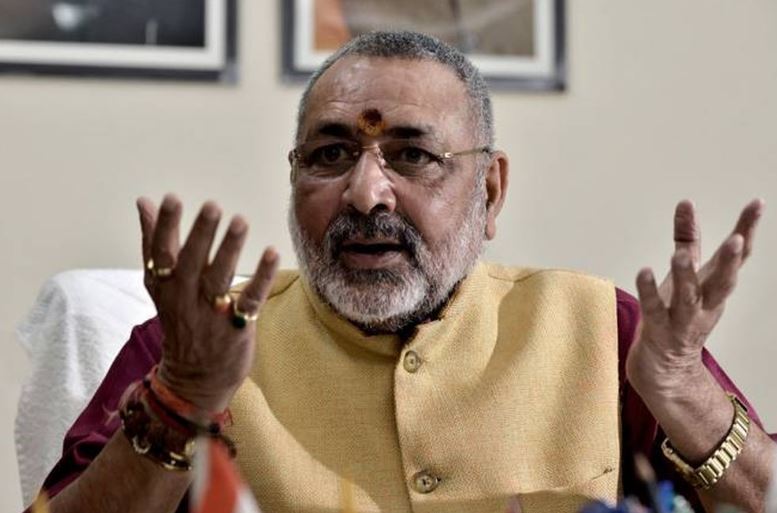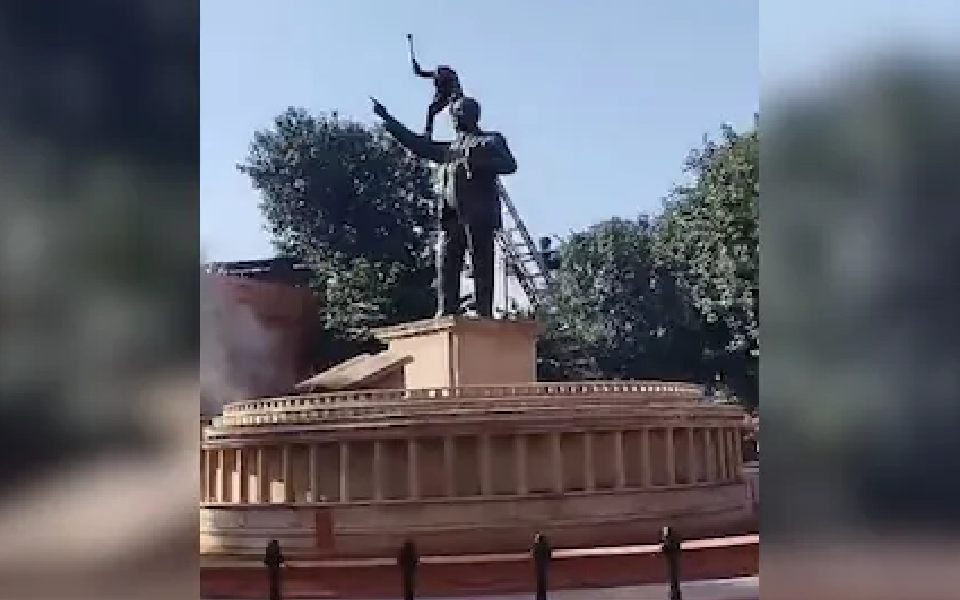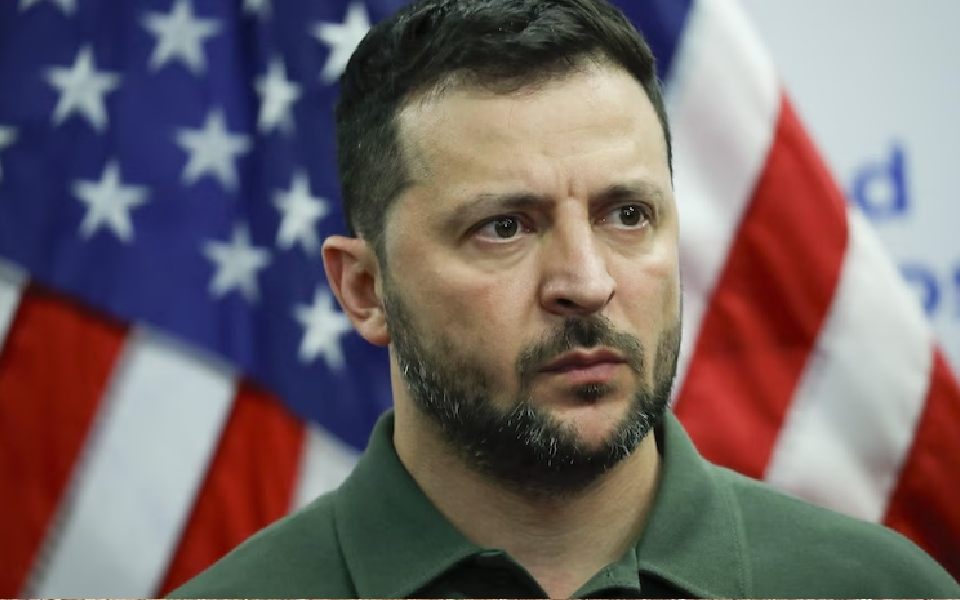Patna, Mar 26: Union minister Giriraj Singh on Sunday alleged that Bihar Chief Minister Nitish Kumar's "silence" over the disqualification of Rahul Gandhi indicated that the JD(U) leader was pleased over increased chances of claiming leadership of the opposition camp.
The BJP leader also slammed Gandhi for "my name is not Savarkar" jibe, and asserted that it will take "many lifetimes" for the Congress leader to become like the freedom fighter-turned- Hindutva mascot.
At the Bihar BJP headquarters, the Begusarai MP was responding to queries from reporters on Kumar, his bete noire, keeping "silent" over the development even though top leaders of JD(U), including the national president Rajiv Ranjan Singh alias Lalan, have condemned the disqualification unequivocally.
"He (Kumar) must be chuffed that his chances have become brighter. After all, competing ambitions for the elusive top slot has become the defining trait of all parties (opposed to BJP)", said Singh.
He, however, bristled at Gandhi's assertion that he would not seek an apology for defamatory remarks that led to his conviction by a Gujarat court, with the remark "my name is not Savarkar".
The allusion was to petition for clemency of V D Savarkar, while he was lodged in jail, to the British imperialists, which has become a stick to beat the BJP with for its opponents.
"It will take many lifetimes for Rahul Gandhi to become like Savarkar", fumed Singh, charging the Congress leader with behaving like an Emperor (shahenshah) who had no respect for Prime Minister Narendra Modi.
"My name is not Savarkar, my name is Gandhi and Gandhi does not offer an apology to anyone," Rahul Gandhi had said on Saturday responding to a query on repeated calls by the BJP seeking his apology over various issues.
The former Congress chief made the remarks while addressing a press conference after being disqualified from Lok Sabha.
Let the Truth be known. If you read VB and like VB, please be a VB Supporter and Help us deliver the Truth to one and all.
New Delhi, Jan 26 (PTI): The Congress alleged Saturday its Rithala candidate Sushant Mishra was assaulted by a poll official, and demanded a thorough probe into the incident and action against him.
Party general secretary Jairam Ramesh claimed Sushant Mishra was assaulted by an Election Commission of India official on Saturday.
He alleged the official also attempted to prevent Mishra from undertaking a Padayatra for which the Delhi Police had already given permission.
In a post on X, Ramesh said, "@sushant_m has been actively taking up violations of the Model Code of Conduct by other candidates in the ongoing Delhi Vidhan Sabha elections. This unprecedented and illegal act of partisanship by an official of a Constitutional body like the ECI can only be seen as a desperate attempt by the AAP and BJP to stem the surge of support for his candidacy and that of the Congress Party in the Delhi Vidhan Sabha elections"
Ramesh said the Congress remains undaunted and will continue to raise the voice of people and protect the sanctity of elections.
"To preserve the integrity of the electoral process, the Indian National Congress demands a full inquiry into the incident and immediate corrective action against the concerned official," the Congress leader demanded.
Mishra has also separately written to the returning office and Chief Electoral officer and the Election Commission about the incident, demanding action against the accused.
.@INCIndia के रिठाला विधानसभा के उम्मीदवार सुशांत मिश्रा (@sushant_m) पर कल @ECISVEEP के एक अधिकारी ने हमला करके उन्हें घायल कर दिया। अधिकारी ने उन्हें पदयात्रा करने से रोकने का भी प्रयास किया, जिसके लिए दिल्ली पुलिस ने पहले ही अनुमति दे दी थी।
— Jairam Ramesh (@Jairam_Ramesh) January 26, 2025
सुशांत मिश्रा दिल्ली विधानसभा… pic.twitter.com/sQ7I6EIvvY





